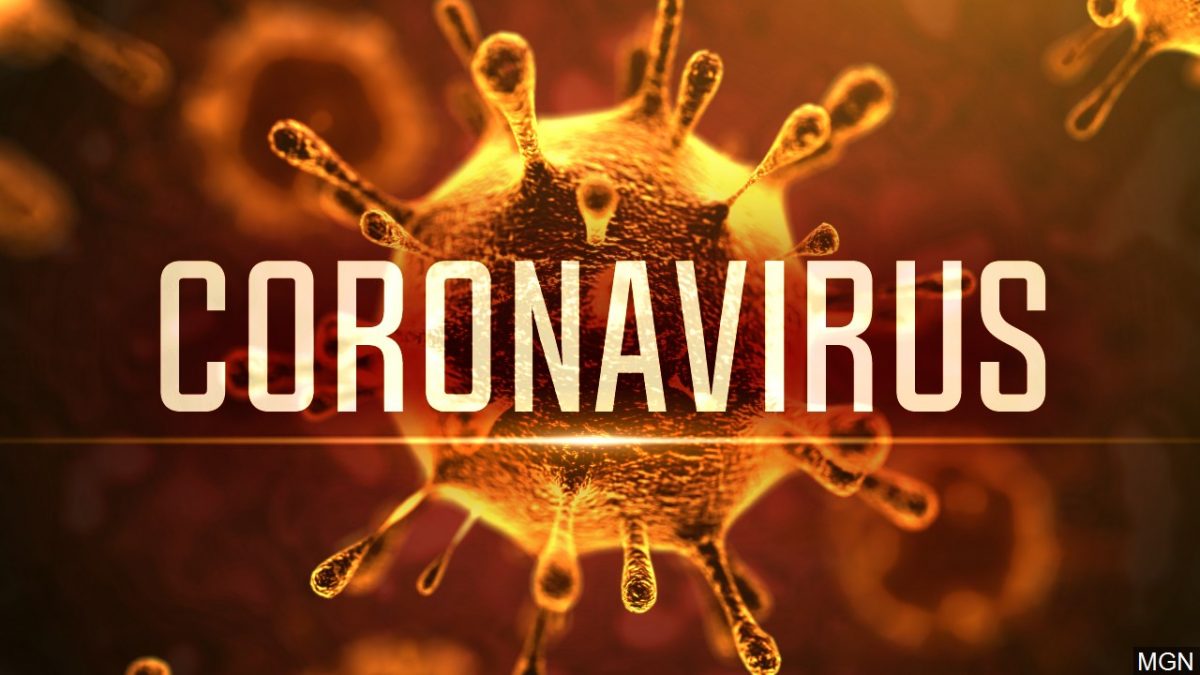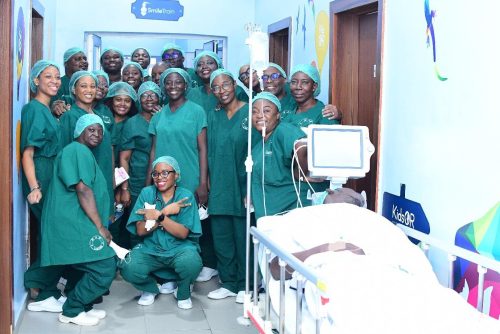CORONAVIRUS/COVID-19 & SICKLE CELL DISORDER
It is no longer news that Coronavirus is wreaking havoc across the globe.
What is Coronavirus?
- It is a new virus (discovered only in December 2019)
- It is not yet well understood, so scientists and doctors are still learning about it
- The virus affects mainly the respiratory tract – from the nasal cavity down to the lungs
What is COVID-19?
- COVID-19 is the illness or disease caused by Coronavirus
- The disease has since spread all over the world and on March 11, the World Health Organisation (WHO) declared it a PANDEMIC.
- The incubation period ranges from 1 day to 14 days (ie, the period from exposure to the virus to the appearance of first symptoms/signs of COVID-19)
Symptoms & Signs of COVID-19
The main symptoms include the following:
- Fever (High temperature)
- Continuous dry cough
- Shortness of breath
Other symptoms include:
- Sore throat
- Sneezing
- Body aches and pains
- Weakness
- Headache
- Nausea and vomiting
- Diarrhoea
- In advanced stage, symptoms & signs of Bronchitis and Pneumonia, Kidney failure.
Some Statistics:
- The first case of Covid-19 was in China in December 2019
- As at March 25th 2020, 196 countries have reported cases of Covid-19
- Globally, there is a total of 463,371 confirmed cases
- Globally, 20,912 deaths from the have been reported from Covid-19
- Nigeria recorded its first case on February 27th 2020; and as at March 25th 2020, Nigeria has reported 46 confirmed cases (30 of which are in Lagos) and 1 death.
Some Good News!
- Nigeria has been preparing for this eventuality (Recall that Nigeria stamped out the dreaded Ebola virus in 2014; so there is positive track record)
- So Nigerian authorities have since deployed resources to contain the spread of the infection across the country
- Fatality rate (ie chance of dying from the disease) is relatively low (2 -3%) – compared with about 10% with Ebola.
The Not-So-Good News:
- Coronavirus is a new virus and a lot is still not known about it; doctors and scientists around the world are just learning as the pandemic is playing out
- Coronavirus is readily or easily transmitted
- A person can harbor and transmit the virus without showing any signs or symptoms
- It is spread via droplets laden with the virus in the air that get there through sneezing or cough OR via contaminated surfaces – door handles, tap handles, railings, utensils, our mobile phones, tissues, currency (cash), etc… And these may remain infectious for up to 1 week or more!
- Nobody is immune; Because it is a new virus, our immune systems have not developed antibodies against it. So there is no community or population or herd immunity
- Currently, there is no vaccine or cure (although a lot of work is being done with vaccine and drug trials)
GENERAL DOs & DONTs
Dos:
- Listen out for accurate public Health information about COVID-19 (public announcements on Radio & TV – from the NIGERIA CENTRE FOR DISEASE CONTROL (NCDC) and government authorities
- Wash your hands thoroughly and frequently with soap and water (for at least 20 seconds) Or use alcohol-based hand sanitizers where soap and water are not available
- When you have to Cough or sneeze, do so into your sleeve with your elbow bent or into tissue paper – which must be immediately discarded.
- If you travelled to any affected country in the last 14 days, or you have been exposed, stay at home for 14 days. This is called self-isolation
- If you are sneezing or coughing, or have difficulty breathing, CALL THE NIGERIA CENTRE FOR DISEASE CONTROL (NCDC) EMERGENCY NUMBERS:
- 0800 – 97 – 0000 – 10 (TOLL FREE)
- +234 708 711 0839 (WHATSAPP)
- +234 809 955 5577 (SMS)
- Wipe railings, door knobs, surfaces with household bleach solution regularly
- Clean your mobile phone with alcohol wipes regularly
DONTs:
- Do not panic!
- Do not believe all you read on social media
- Do not use handkerchiefs when you sneeze or cough. Use tissue and discard immediately
- Do not stay in crowded places
- Do not stay near persons sneezing or coughing (keep a safe distance of at least 6 feet from persons sneezing or coughing)
- As much as possible, keep your hands away from your face – mouth, nose, eyes
ARE THERE SPECIFIC GUIDELINES FOR PERSONS WITH SICKLE CELL DISORDER WITH RESPECT TO COVID-19?
In their efforts to slow down the spread of Coronavirus in Nigeria, the Federal Government and some state governments (including Lagos State), have directed – among other measures – as follows (for an initial couple of weeks):
- Stay at Home (#stay@home): That as much as possible, people should stay at home
- Social Distancing: If they have to go out at all, they must observe SOCIAL DISTANCING (keeping at least 6 ft away from the nearest person)
- Gatherings of more than 50 persons are prohibited (including churches, mosques, weddings, parties, concerts, etc)
All these measures above apply to EVERYBODY.
But what about for persons living with Sickle Cell?
As COVID-19 is a new illness, there is limited specific information for people living with sickle cell. Just as for persons with other co-morbidities, people with sickle cell disorder are at greater risk of more severe manifestation of COVID-19. So they need to take EXTRA PRECAUTION during these times.
Experts have advised that they observe SHIELDING in order to keep themselves safe. Shielding measures are means of protecting extremely vulnerable people by minimising their interaction with others.
Shielding measures:
- You are strongly advised to stay at home at all times and avoid any face-to-face contact for a period of at least 12 weeks
- Strictly avoid contact with someone who is displaying symptoms of COVID-19 (eg high temperature and/or new and continuous cough) – even if they are your family
- Do not leave your house
- Do not attend any function where there are crowds or gatherings (including gatherings of friends and families even at home; weddings, church, mosque, etc)
- Do not go out shopping or for leisure or travel
- Keep in touch via phone, internet, and social media
- All people coming to your home should wash their hands with soap and water for at least 20 seconds on arrival to your house and often whilst they are there
- Everyone living with you in the house should do what they can to support you in observing SHIELDING
- Minimise the time spent with other people in shared spaces (kitchens, bathrooms, sitting areas)
- Keep shared spaces well ventilated
- Aim to keep 6 feet (3 steps) away from people you live with and encourage them to sleep in a different bed where possible
- If possible, use a separate bathroom from the rest of the household
- A useful tip is to consider drawing up a rota for bathing, with you using the facilities first
- If you do share a toilet and bathroom with others, it is important that they are cleaned after use every time
- Use separate towels from the other people in your house
- If you can, you should take your meals to your room to eat
- Wash your cutlery and dishes with washing up liquid and warm water and dry them thoroughly
- Everyone in your household should regularly wash their hands, avoid touching their face, and clean frequently-touched surfaces
- During this time of SHIELDING, please speak to those you trust on how they can support you (family friends, carers, neighbours, church/mosque groups, etc)
- Hospital Appointments: During the SHIELDING period, try to speak with your health care provider on the phone, or email, etc. Unless absolutely necessary, defer all your appointments.
- In case of Sickle Cell Crisis: If you are experiencing severe sickle cell pain crisis, then go to hospital as usual, taking precautions on the way, observing SOCIAL DISTANCING.
- In the event that you have a high temperature and/or new and continuous cough, STAY HOME and call the NCDC Emergency Number:
- 0800 – 97 – 0000 – 10 (TOLL FREE)
- +234 708 711 0839 (WHATSAPP)
- +234 809 955 5577 (SMS)
A word on IBUPROFEN for pain in this era of COVID-19
Concerns have been raised about the role of ibuprofen in COVID-19 (that it is associated with severe disease). Persons living with SCD who develop fever suspected to be COVID 19 should discuss options for treatment of fever other than Ibuprofen.




